Elton John’s Self-Titled Album, ‘Your Song’ And His First Big Hit
Giving Elton John and lyricist Bernie Taupin ‘the biggest highlight of our career,’ Elton John’s self-titled album set him on the path to global success.
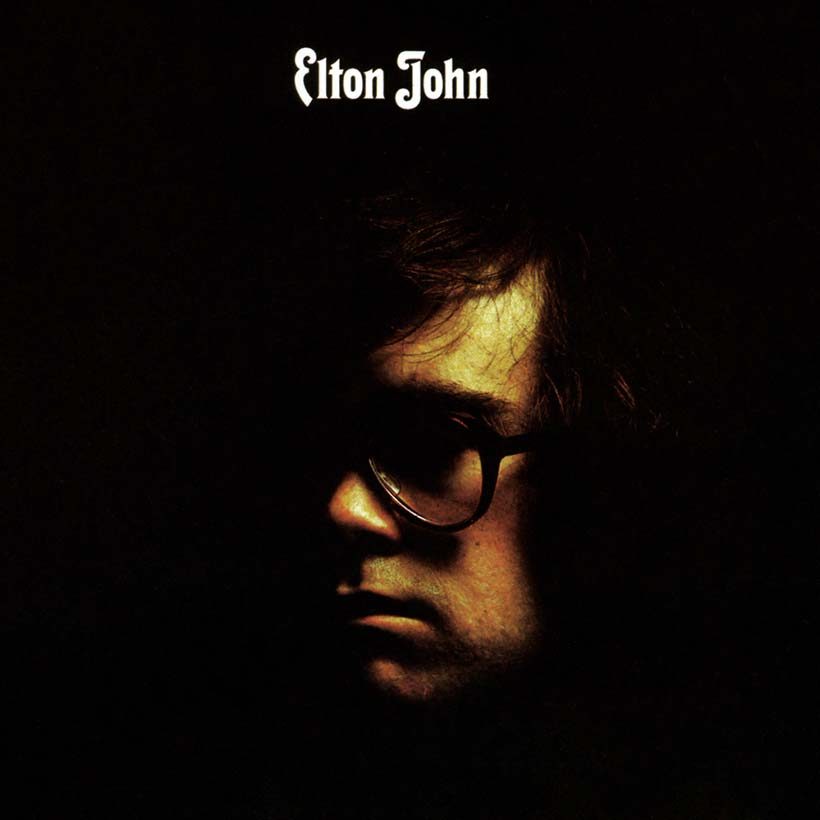
In the confidence of its songs and even in the image on its front cover, Elton John’s self-titled album was the record that brought the young English singer-songwriter out of the shadows. It took the release of its first track, and definitive ballad, to help make that happen. But when the wider album-buying public investigated Elton John, they found an album rich in powerful melodies and vocals, evocative lyrical imagery and luminous orchestrations.
As he turned 23 in March 1970, the itinerant pianist was preparing for the release of an album that showed the growing maturity of his songwriting. Yet the debut set issued by DJM in June the year before, Empty Sky, had failed to reach the bestsellers list, and for all of his supporters in the media, his nearly-man status had obliged him to eke out a living playing on sessions for others, including budget covers of existing hits.
As Elton marked that birthday, his self-titled second album was heralded by the single release of “Border Song.” The gospel-tinged ode featuring the Barbara Moore Choir displayed both Elton’s increasing confidence and the Americana-soaked imagination of his writing partner of three years, Bernie Taupin. The track received considerable airplay in Britain and even an endorsement from one of Elton’s pop heroines, Dusty Springfield. It still failed to chart, but better days were coming.
Recording sessions: a fresh statement of intent
The simple, eponymous title of Elton John’s new album was a fresh statement of intent. Recorded at Trident Studios in London, it began his collaboration with producer Gus Dudgeon, but still with a co-ordination role for Steve Brown, who had overseen Empty Sky. It also featured other such contributors as guitarists Caleb Quaye and Clive Hicks, and trusty comrades on backing vocals, including Lesley Duncan, Roger Cook, and Madeline Bell. Quaye was a member of Hookfoot, who had backed Elton on radio sessions and at gigs such as a 1969 show at London’s Royal College Of Art.
The other key ally was Paul Buckmaster, a contemporary of Elton’s and a brilliant arranger who gave the album’s sound even greater depth and drama. He had helped to create the sonic sculpture of David Bowie’s “Space Oddity” breakthrough of the previous summer, and now turned his hand to illustrating some of these new John-Taupin creations with dark, majestic orchestrations.
Buckmaster went on to a long working relationship with Elton and put his stamp on albums by countless other luminaries including the Rolling Stones, Carly Simon, Harry Nilsson, and many later artists, before his death in 2017. But his decoration of such eloquent accomplishments on Elton John’s self-titled album as “First Episode At Hienton,” “Sixty Years On,” and “The Greatest Discovery” stand among his best work.
With Buckmaster on board, early discussions about who should produce the record turned to the great George Martin. But Martin, understandably, also wanted to arrange it, whereupon Elton’s management decided not to pursue the idea. Martin and John would, of course, work together decades later, when the producer oversaw the record-breaking remake of “Candle In The Wind,” recorded after Princess Diana’s death in 1997.
It was Buckmaster’s work with Dudgeon, who produced “Space Oddity,” that prompted the orchestrator to urge him to work with John. Elton later remembered: “We had heard ‘Space Oddity,’ which for me was one of the best records of all time, and we learned that it was produced by Gus Dudgeon. And we knew then that we had to get him to produce my second album.” When Gus heard the demos of “Your Song” and “The King Must Die,” he was sold.
The pensive, shadowy ambience of some of what they made together was offset by the ebullience of “Take Me To The Pilot” and the romanticism of “I Need You To Turn To” – and, of course, of the opening “Your Song,” which would soon transform Elton’s entire career. But the singer-songwriter’s determination not to become too obsessed with his own professional fate showed in his cheery persona with the UK media.
Release and critical reception: ‘A truly great album’
“Too many of the writers and bands take this whole thing too seriously,” Elton told Record Mirror as the album was being released that spring. “If you’re in it for the money, a bad song or a failure to make any cash will leave you considering suicide or moping around in utter despair. You have to take some stock in creating a song, but you have to keep the whole outlook in a light vein or it becomes incredibly mechanical and loses all feeling.”
In the month of his self-titled album’s release, which took place on April 10, 1970, the new line-up of the Elton John Band, a trio featuring Dee Murray on bass and Nigel Olsson on drums, made their debut with the first show in a residency at London’s Roundhouse. They opened for a kindred spirit who would become Elton’s great friend and fellow breakthrough artist, Marc Bolan, with his band T.Rex, as part of the Pop Proms event, introduced by BBC Radio 1 tastemaker John Peel.
On 2 April, Elton performed “Border Song” on the already long-running British TV chart show Top Of The Pops, sharing studio time with none other than Dusty Springfield, who sang “Morning Please Don’t Come” with her brother Tom. Elton and the band spread the word about the new album by touring extensively in Britain until early summer. The record only managed an initial two weeks, and a No.48 peak, on the UK chart on first release, but there was no doubt that momentum was, finally, building.
“It’s nice to see Cat Stevens and Elton John providing the British answer to Neil Young and Van Morrison,” wrote Richard Williams in his review of the album for Melody Maker. “And make no mistake, Elton is up in that class.” He finished by describing the record as “a truly great album.” Soon afterwards, Stevens himself was telling the same pop weekly: “At the moment I’m a big fan of Frank Zappa and Elton John, but I dig anybody who is making good sounds.”
For all that enthusiasm, Elton still had to find ways to put food on the table. He continued to take studio session work, most notably playing on The Hollies’ UK Top 10 hit “I Can’t Tell The Bottom From The Top,” and singing backing vocals on TV appearances by pop acts such as the Brotherhood Of Man and Pickettywitch. He even took a July 1970 session for a projected album to popularise the songs of the painfully underappreciated Nick Drake.
Singles and chart performance: ‘the biggest highlight of our career’
“Border Song” was first released in America on MCA’s small Congress label, but when US executive Russ Regan heard Elton’s potential, the stakes were raised. The single was reissued on the bigger MCA company that Regan headed, Uni Records, and gave the artist his first Hot 100 entry in August – immediately before he crossed the Atlantic for the historic shows at the Troubadour in Los Angeles that helped break him in America.
The single only reached No.92, but charted for five weeks, before the album entered the bestsellers in October. As ‘Your Song’ became the musician’s first bona fide hit, at No.8 in the US and No.7 in the UK, word of mouth about the Elton John album became unmissable. By November, he was opening for The Kinks at Fillmore West; within a few days, he switched coasts to Fillmore East to support Leon Russell, who had come to see him at Troubadour, and whose song craft Elton placed above that of almost any other influence.
Elton John’s self-titled album peaked at No.4 in the States in February 1971, turning gold that month and going on to complete a full year on the American chart. It peaked at No.5 in the UK in March. But what really touched the emerging Elton was the huge compliment paid to him by another of his idols, Aretha Franklin.
The Queen Of Soul acknowledged the innate soulfulness of “Border Song” by recording her own version on Atlantic, and releasing it as the follow-up to her R&B No.1 “Don’t Play That Song,” Appropriately, the John-Taupin composition entered the soul chart in the same week that “Your Song” made its US Hot 100 debut. Aretha’s “Border Song” went on to be a substantial No.5 success on the R&B chart, and hit No.37 on the pop chart. “Up to that point,” Elton later said of the cover, “that was the biggest highlight of our career.”
Life after Elton John: ‘I know what I’m capable of’
With the incredible productivity that Elton maintained in that era, by the time of the artistic and commercial accolades for his self-titled album, he had not only released the follow-up, Tumbleweed Connection, but completed the Friends film soundtrack, released in March, and the 17-11-70 live album, which followed in April. He had also started work on yet another of the titles in his unforgettable evolution, Madman Across The Water.
Listen to the best of Elton John on Apple Music and Spotify.
Now, the foot was to the floor and soon, Elton’s life would be transformed. But for the moment, in the wake of that Troubadour arrival, and as the Elton John album grew ever more popular, he was managing expectations.
“I know how good I am, and what I’m capable of,” he told Melody Maker. “You simply can’t sit back and believe everything people say about you, or you’d get terrible ego problems. I do believe that we write good songs, but I get very embarrassed when people say so.”
Buy or stream the Elton John album.


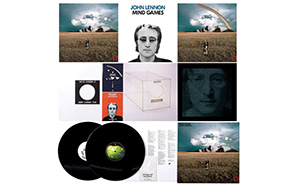
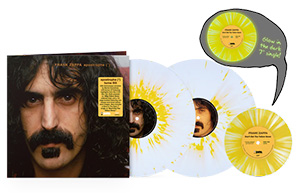

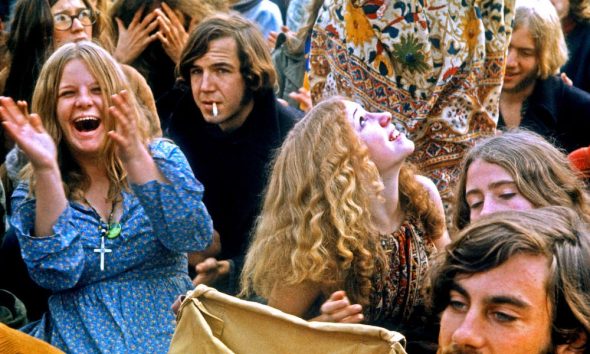
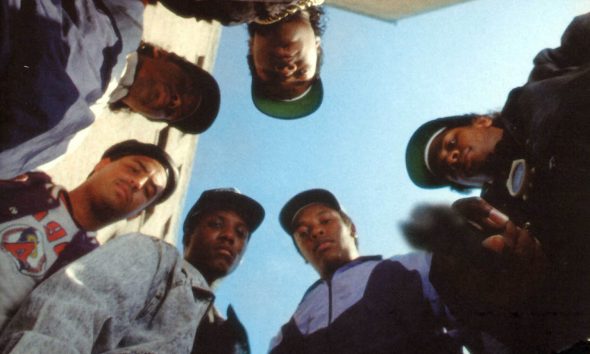

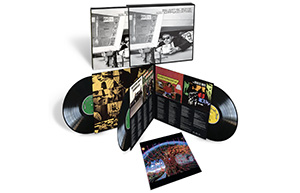

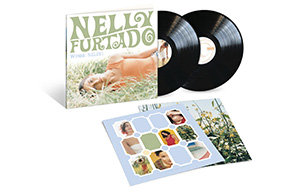
Reggie Montgomery II
May 10, 2020 at 9:42 pm
“Your Song”, “Revival(Love Is Everywhere)”, “Killing Me Softly with His Song”. Are just the many songs from the seventies when you heard them the first time you searched your radio dial to hear again because you thought you dream how wonderful they sound and had to hear it again just to make sure what you just listen too was that dreamy and so heart felt.